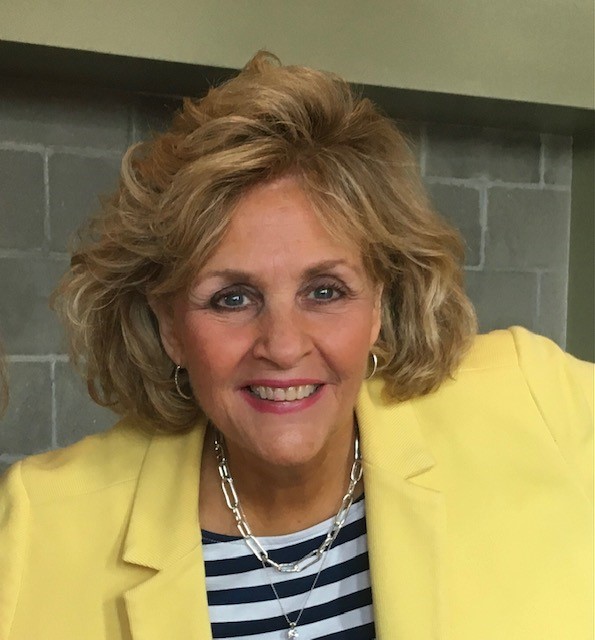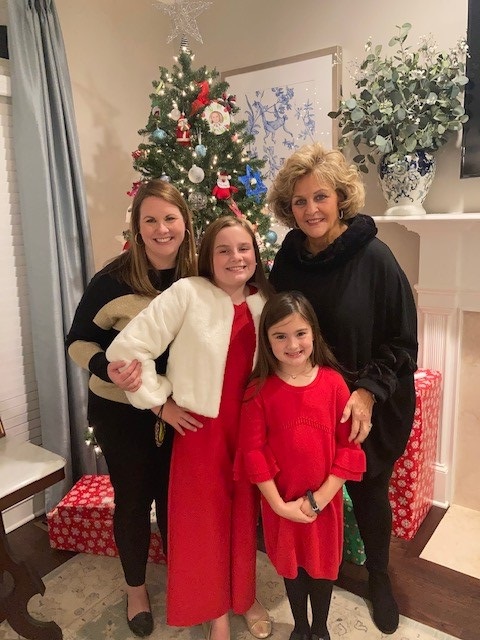Georgia Scobee: Hard Working Fundraiser with Deep Roots in Baton Rouge - and a Multiple Myeloma Fighter
At 67 years old there is no stopping Ms. Georgia. Born and raised in Baton Rouge, La., she is well known in her hometown. After graduating from Louisiana State University (LSU) she started teaching immediately after college. In fact, she taught many of the physician’s children that she would later depend on for her cancer care and treatment.

Georgia predominately taught 6th grade English Literature for 24 years in private school before pivoting her career into the development side. At the same institution, she became the Alumni Director and played a large role in the fundraising campaign to raise $8 million for a theatre and pavilion.
Then in 2003 the LSU Foundation offered her a fundraising position. Excited to see things come full circle, she was happy to return to her alma mater. It was in late 2006 as she was busy traveling to kick off another capital campaign when leg pain changed everything.
Georgia explained, “I felt a deep pain in the top of my leg, almost like in my bone and I knew something was very wrong.”
She underwent numerous X-rays and weeks of physical therapy with no respite from the leg pain, but no one could figure out the cause of her excruciating pain. So she went to an orthopedic physician and got an MRI. In a serious tone the doctor said, “Please just stay here for a minute.”
At this point Georgia felt the news was not going to be good. “I was absolutely shell shocked when they told me I had a tumor in my leg.” After seeing a local oncologist he recommended that her next step should be to seek treatment at a large cancer institution in Texas. It was there, in 2007 that she received her diagnosis of plasmacytoma.
After receiving radiation and then enduring surgery, a rod was inserted into her femur to keep her leg from breaking. Georgia continued to make trips to Texas for her cancer care treatments. “This became really difficult on me, all the traveling to another state for treatment while I was still working full time. The cancer center required that I go there once a month and spend five days there for testing and blood work, and the travel was taking a toll on me and my job which I needed to keep.”

Georgia told her endocrinologist about the trouble she was having trying to manage traveling for her care and he offered to mail her blood work to the institution so she wouldn’t have to travel. After this conversation she started thinking about finding a local oncologist so she could seek treatment in Baton Rouge.
She knew a local oncologist for many years from teaching his children. She called his office and said, “Please tell Dr. Miletello that this is Georgia Scobee, I taught his daughters and I would like to be one of his patients.”
Medical Oncologist Dr. Gerald Miletello with Hematology Oncology Clinic said, “Patients are in shock and devastated at first when they hear they have cancer, but once it sinks in patients typically change in the way they look at life. They realize what is important in their lives and tend to not hold onto the petty things they used to worry about.”
It was after a check-up with her orthopedic doctor that two new spots were discovered, one under the right breast and one in the left groin area so he followed up with Dr. Miletello. At this point Georgia was diagnosed with multiple myeloma and Dr. Miletello decided radiation and additional treatment was needed.
Dr. Miletello continued, “Georgia is intelligent and well respected in our community. After being treated with surgery, radiation and Zometa®, she is doing really well and has been off treatment for seven years.”
After being treated at a large cancer institution, it was such a positive experience for Georgia once she became a patient at Hematology Oncology Clinic. The traveling back and forth to Houston while trying to work a full time job was just too stressful for her.
“It’s so nice to be able to get my treatment and care here locally in Baton Rouge, when I think about the experiences I’ve had it tears me up sometimes. The most important thing has been the incredible support and care from Dr. Miletello and his amazing staff.”

“Everyone at Hematology Oncology Clinic is so friendly and they call you by your name, they know who you are and that is such a warm feeling that you don’t experience at other cancer centers.”
Georgia stated, “Dr. Miletello is an amazing and talented oncologist. He has an exceptional bed side manner and personality and he cares about his patients. I believe the care you receive as a patient makes a huge difference in your attitude to get well and stay positive.”
After a total hip replacement in 2014, complications occurred due to radiation received in the past. Numerous surgeries occurred and after months of treatments and having to wear a wound vacuum for several months, Georgia said, “I am so happy to be alive because at one point I really didn’t think I was going to make it.” It was a scary time, but faith, prayers and excellent medical care allowed her to heal.
Continuing, “I am so lucky to have the support of my daughter, her husband Ryan and my friends. Here is the thing about cancer, you can’t stop living and you can’t let those around you stop living their life either.”
Georgia is very proud of her daughter, Meghan. She earned an undergraduate degree from Wellesley College then went to graduate school in Philadelphia followed by a PhD in chemistry from Duke University. “So when I was diagnosed and Meghan wanted to drop out of school to help me, I said no ma’am! None of us know what God’s plan is for us and you can’t stop your life because of cancer.”
Georgia is still going strong, working full time and in her free time hanging out with her girlfriends, “I hope to make it to 80 so I can see my oldest granddaughter, Anne through college and I would love to see my youngest granddaughter, Aimee make it through high school.”
Note: Cancer patient outcomes and experiences may vary, even for those with the same type of cancer. An individual patient’s story should not be used as a prediction of how another patient will respond to treatment.





